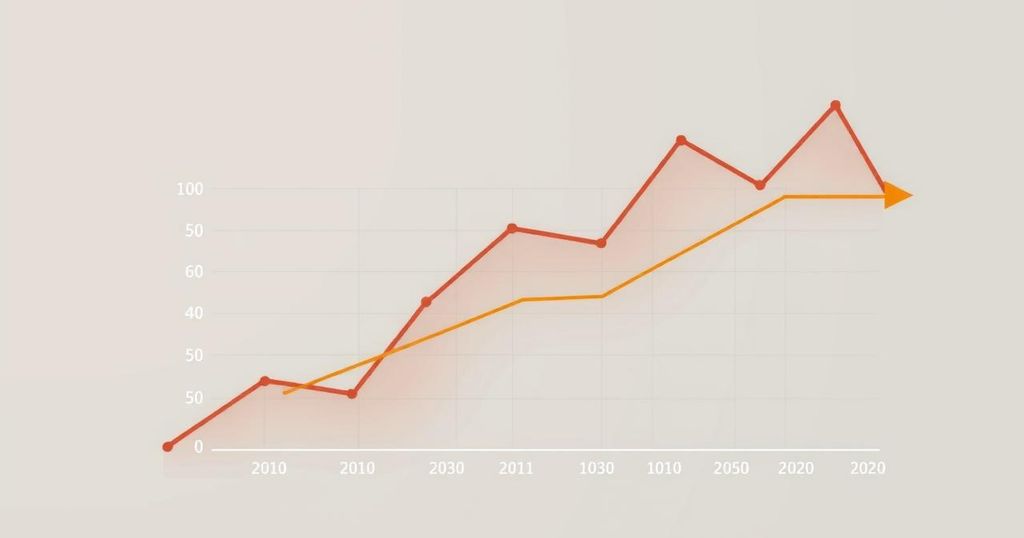Tesla stock’s recent decline has erased a 91% gain, dropping 8% to $241 on Monday. This is the lowest level since November 4, preceding Trump’s election. Concerns over economic policies and negative delivery forecasts contributed to the downturn, with Musk losing significant net worth as a result.
Tesla stock has significantly decreased, trading lower than pre-election levels following President Donald Trump’s victory in November. This stark decline erases the previously observed 91% gain for the electric vehicle manufacturer led by Elon Musk, as it becomes emblematic of the current downturn in the stock market.
As of Monday, shares of Tesla dropped approximately 8% to $241, marking their lowest price since November 4, the day preceding the election. This decline coincided with broader market losses, with the tech-heavy Nasdaq Composite falling nearly 3%, entering correction territory.
Specifically influencing Tesla’s stock price was a report from UBS analyst Joseph Spak, who anticipated a 5% decrease in Tesla’s vehicle deliveries for 2025. This projection signifies consecutive years of negative growth, contradicting the prevailing analyst expectations for a 12% increase in vehicle deliveries this year.
Furthermore, Tesla’s stock has plummeted over 50% from its peak in December, when shares soared due to anticipated favorable policies from the Trump administration toward the heavily regulated company. Notably, Elon Musk’s net worth has also suffered, decreasing by $134 billion from December’s $464 billion, mainly due to the drop in Tesla’s stock value.
Musk, Tesla’s largest shareholder, remains significantly wealthier than anyone else globally, valued at around $120 billion more than the next richest individual. However, he personally lost $12 billion on Monday due to the stock’s decline.
As the head of the Department of Government Efficiency (DOGE), Musk has been actively involved in overseeing government cost-cutting measures, following substantial donations toward Trump’s political efforts. Additionally, Tesla has been adversely impacted by Trump’s tariffs, given that China represents its second-largest market, and their vehicles rely heavily on parts from Canada, China, and Mexico. Recently, sales in China and Europe have flagged, raising concerns about the impact of Musk’s public political stances on Tesla’s brand reputation.
In summary, Tesla stock has reverted to pre-Trump election levels, reflecting a substantial downturn that has erased previous gains. Key factors contributing to this decline include negative delivery forecasts and broader market trends connected to Trump’s economic policies. Furthermore, Elon Musk’s net worth has absorbed a significant blow. As the company continues to navigate challenges exacerbated by political and economic factors, its brand reputation hangs in the balance.
Original Source: www.forbes.com






